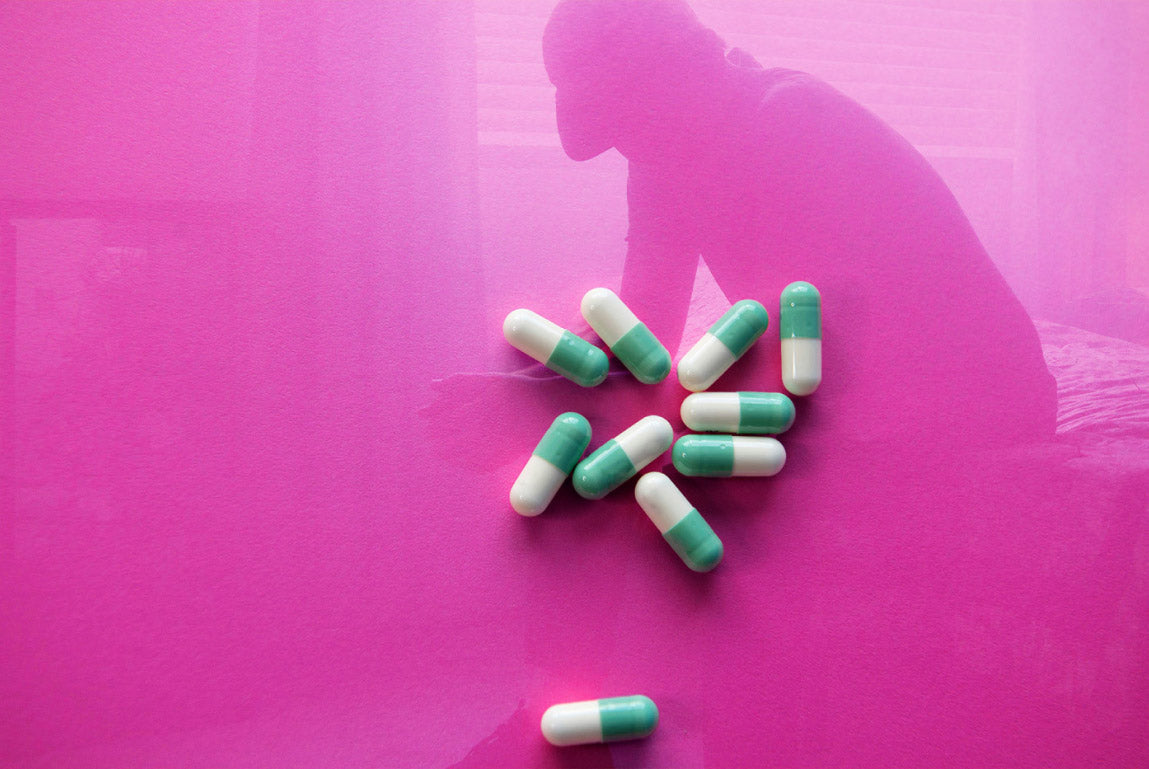

Key Takeaways
Delayed ejaculation is becoming more common, thanks to psychological, medical, and lifestyle factors.
Antidepressants, especially SSRIs like Zoloft, can significantly impact sexual function.
There are solutions—ranging from medication adjustments to lifestyle changes—to improve sexual function.
Open communication with a doctor (and your partner) is key to overcoming this challenge.
If you’re looking for ways to support sexual health naturally, consider supplements designed to enhance pleasure and function.
The Silent Struggle of the Endless Climax Quest
Sexual health is kind of a big deal—yet when people talk about male sexual dysfunction, the spotlight is usually on erectile dysfunction (ED) or premature ejaculation. But what about the guys stuck on the other side of the spectrum? The ones who feel like they're trapped in an R-rated version of Groundhog Day, where climax just... never... happens?
That’s right, we’re talking about delayed ejaculation (DE), a condition where reaching orgasm feels more like running a marathon in quicksand. It’s frustrating, it’s confusing, and it’s on the rise. Why? Let’s break it down.
Why Is Delayed Ejaculation Becoming More Common?
Delayed ejaculation can have multiple causes, from psychological and emotional factors to medication side effects. Here’s why more men are struggling to cross the finish line:
1. Your Brain Won’t Let You
Performance Anxiety: The more pressure you put on yourself, the less your body cooperates. It’s like your brain is holding your orgasm hostage.
Depression & Anxiety: Mental health struggles can mess with arousal. (Ironically, so can the meds that treat them—more on that below.)
Too Much Porn: Your brain might be so used to Hollywood-style stimulation that real-life sex feels like watching paint dry.
2. Your Meds Are Working Overtime
Antidepressants and Sexual Dysfunction: SSRIs (Selective Serotonin Reuptake Inhibitors) like Zoloft, Prozac, and Lexapro are great for mental health but notorious for slowing things down in the bedroom. They boost serotonin, which helps mood but can suppress dopamine—the fun chemical you need for pleasure.
Zoloft and Delayed Ejaculation: This common SSRI is a top offender when it comes to making climax elusive.
Post-SSRI Sexual Dysfunction (PSSD): Some unlucky guys experience lasting sexual side effects even after stopping SSRIs. Fun!
3. Your Body Is Plotting Against You
Diabetes & Neurological Issues: Conditions like diabetes, multiple sclerosis, or nerve damage can interfere with sexual function.
Age-Related Changes: Getting older doesn’t mean you have to slow down, but hormones and circulation can change over time.
4. Your Relationship Needs a Tune-Up
Emotional Disconnect: If things aren’t great outside the bedroom, they probably aren’t fantastic inside it either.
Performance Pressure: If your partner is watching the clock, it’s not exactly a turn-on.
5. Your Lifestyle Choices Are Interfering
Alcohol & Recreational Drugs: Great for lowering inhibitions, terrible for maintaining function.
Excessive Masturbation: If your body gets too used to solo performances, it might struggle to adapt to a duet.
Can You Reverse SSRI-Induced Sexual Dysfunction?
If your delayed ejaculation started after beginning an SSRI, there’s hope. Here are a few strategies to get things back on track:
Medical Adjustments
Switch Medications: Some antidepressants, like Wellbutrin, have a lower risk of sexual side effects.
Lower the Dose: Sometimes, reducing the amount can reduce the problem.
Medication Add-Ons: Certain drugs, like Buspirone, are prescribed to counteract SSRI-induced sexual dysfunction.
Lifestyle & Behavioral Strategies
Mindfulness & Relaxation Techniques: If stress is the culprit, meditation or therapy can help.
Cut Back on Porn: Your brain might need to rewire itself to respond to real-life intimacy.
Exercise & Diet Improvements: Boost circulation and hormone levels naturally.
Communication & Relationship Support
Sex Therapy: A professional can help you and your partner navigate this challenge together.
Exploring New Sensations: Different forms of stimulation or positions might help jumpstart arousal.
Final Thoughts
Delayed ejaculation might not get as much attention as other sexual health issues, but it’s real—and it’s treatable. If your climax feels like it’s taking a permanent rain check, there’s no shame in seeking help. Whether it’s tweaking your meds, making lifestyle changes, or exploring natural ways to boost performance, there’s a path forward.
Frequently Asked Questions
Q: Is delayed ejaculation from antidepressants permanent?
A: Not usually. Many men see improvement after switching medications, adjusting dosage, or giving their body time to adjust.
Q: Are there natural remedies for sexual dysfunction caused by SSRIs?
A: Some men find success with lifestyle changes like diet improvements, exercise, stress reduction, and certain supplements (like ahem Popstar Volume + Taste Supplement, which supports overall sexual health).
Q: Can therapy help with SSRI-induced sexual dysfunction?
A: Yes. Therapy options for depression, like cognitive behavioral therapy (CBT), can improve mental health and reduce reliance on medication.
Q: Are there alternatives to SSRIs for depression that won’t mess with my sex life?
A: Some antidepressants, like Wellbutrin, are less likely to cause sexual dysfunction. Talk to your doctor before making any changes.
Q: What’s the best way to talk to my doctor about this?
A: Be direct. Doctors hear this all the time. Explain your symptoms, concerns, and ask about alternative treatments.











